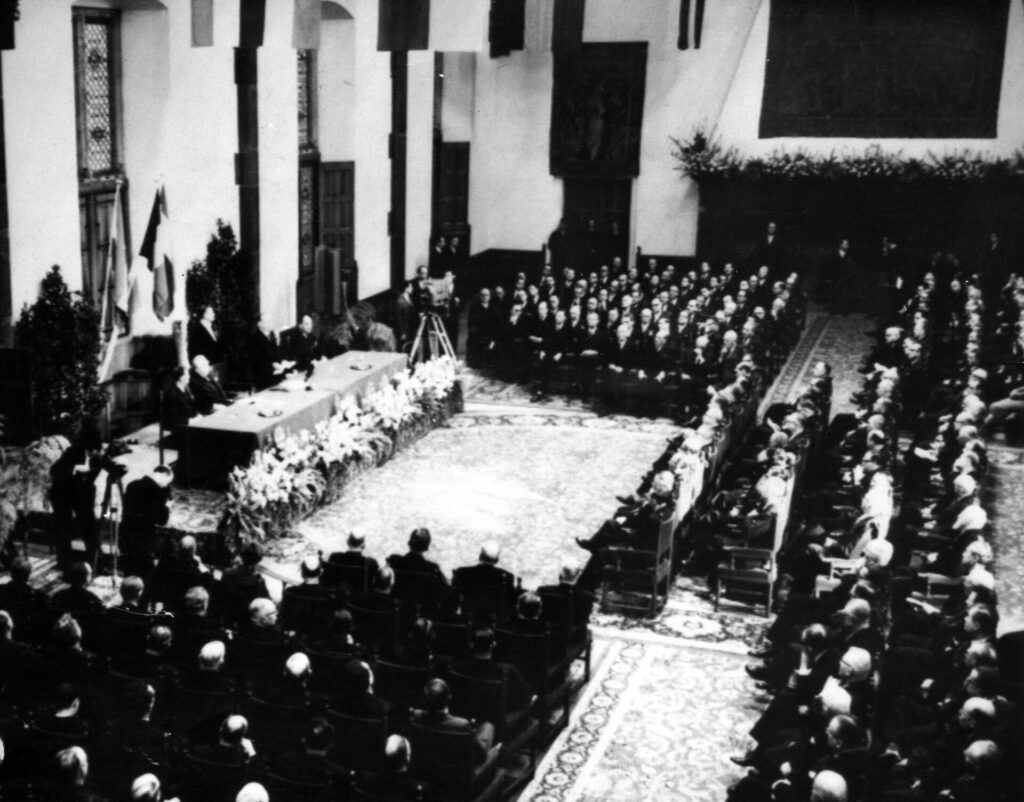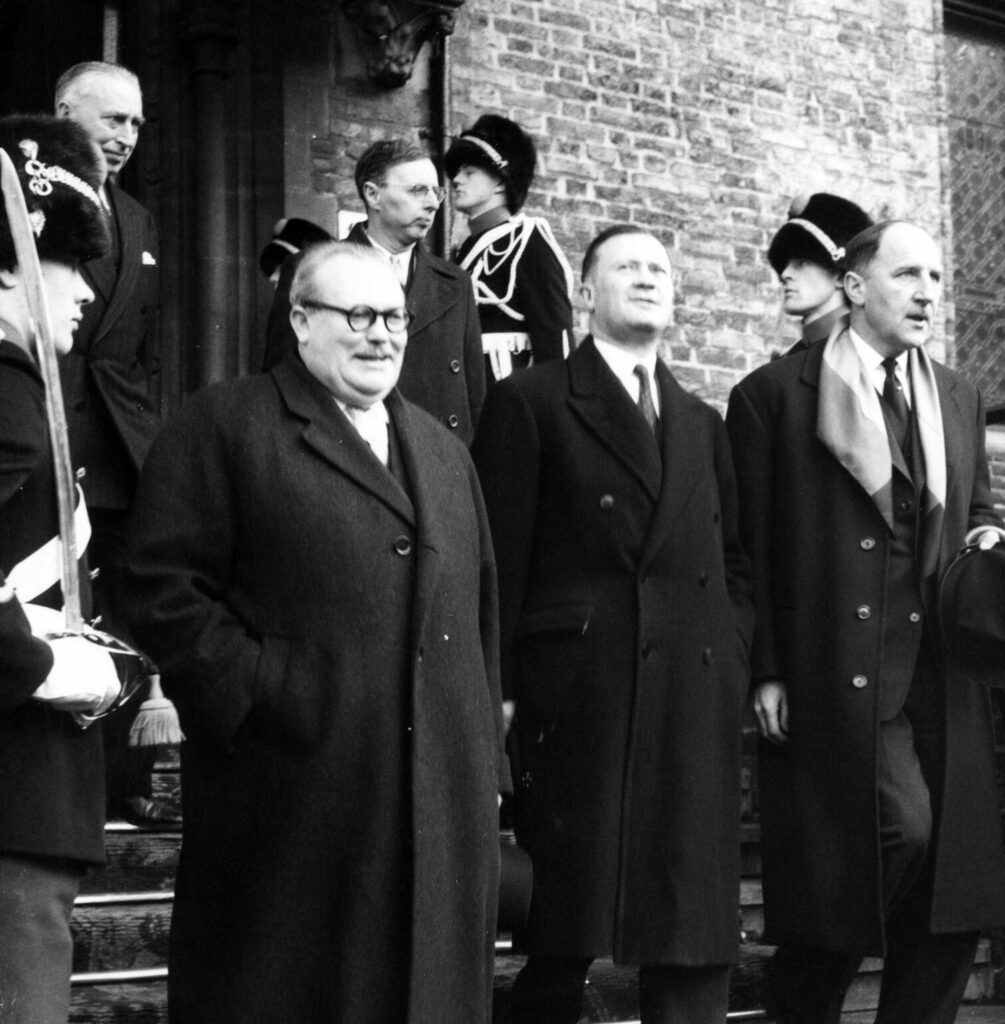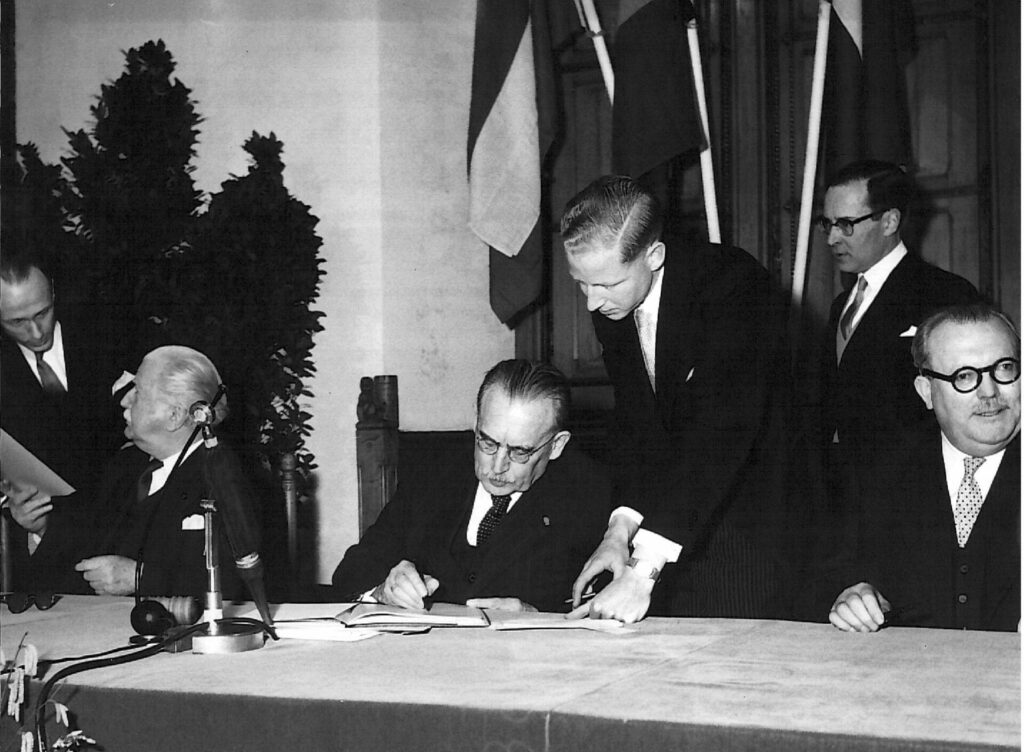On this day, 3 February 1958, the treaty which created the Benelux Economic Union was signed by Belgium, the Netherlands and the Grand Duchy of Luxembourg in The Hague. Setting up a new type of international cooperation, this new regional entity would later inform the creation of the European Union.
In the treaty signed in 1958, Belgium, the Netherlands and Luxembourg declared the Benelux Economic Union would represent a “determination to achieve the free movement of people, goods, capital and services as well as to pursue a coordinated policy in economic, financial and social matters.”
The treaty enhanced a previous customs union signed on 1 January 1948 by these countries, with the protocols drawn up subsequently.

Hall in The Hague where the treaty was signed. Credit: Belga Archives
The benefits of this cooperation were clear at the time, as Dutch exports to Belgium and Luxembourg increased by 266% between 1948 and 1956. Dutch imports from these two countries increased by 200% during the same period.
In July 1953, the Benelux countries agreed on a protocol to coordinate economic and social policy.
A few months later, a second protocol on a common trade policy encouraged a common import-export policy vis-à-vis third countries. Benelux then began to participate as a separate entity within the Organisation for European Economic Cooperation (OEEC) – a body created to allocate and distribute Marshall Plan aid and the European Recovery Programme (ERP) for Western Europe.

Achille Van Acker Prime Minister of Belgium, Joseph Luns Dutch Minister of Foreign Affairs and Victor Larock Belgian Minister of Foreign Affairs. Credit: Belga Archives
Gradually, the three partners learned to speak with one voice and to adopt common positions on international issues.
After the signing ceremony in 1958, the Benelux Economic Union Treaty entered into force in 1960.
EU's precursor
Pioneering new ways of international cooperation, the three countries created a revolutionary model for political and economic collaboration in post-war Europe.
Indeed, the Benelux region at the time provided the model for future European integration, and enabled the creation of the European Coal and Steel Community, the European Economic Community (EEC), and the European Community–European Union (EC–EU).
Interestingly, the three partners also launched the Schengen process, which would come into operation in 1985.
The initial Schengen treaty concerned the opening up, for the first time, the freedom of movement and goods between the signatories: the Benelux countries, Germany and France.
"Today in History" is a new historical series brought to you by The Brussels Times, aiming to take you on a trip down memory lane for newcomers and Belgians alike, written and compiled by Ugo Realfonzo & Maïthé Chini. With thanks to the Belga News Agency.

